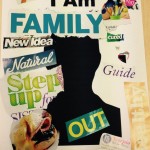Youth Work in Context

As published in Community Training Australia SW Magazine.
‘It is amazing how it seems to be totally acceptable – even institutionalised – to parody and demonise them. We laugh at things that mock teenagers, but if you applied those sorts of jokes to any other sector of society, it just wouldn’t be acceptable.’ (Dr Sarah-Jayne Blakely 2012)
The history of youth is fascinating. The changing social and political environments have both influenced, and been influenced by, young people for generations. The youth arena is a dynamic and ever changing environment, and it is important that we can maintain an eagle-eye view of the impacts on our young people today, and work holistically with them as individuals as well as a group.
One constant throughout youth history, is the tangible tension between the younger generation and their parents and wider society.
In an investigation into the ‘bad behavior of contemporary youth’ in 1843, Dr Kirkman stated; ‘I think morals are getting much worse. There were no such girls in my time as there are now. When I was 4 or 5 or 20 my mother would have knocked me down if I had spoken improperly to her.’
Similarly, there is a widely used quote from a Cambridge student in 1907 about the ‘Youth of Today’ as illustrated in writings by philosophers such as Plato.
“The children now love luxury. They have bad manners, contempt for authority; they show disrespect for elders and love chatter in place of exercise.”
The Age of the Youth Revolution in the 1960s following WWII allowed young people to feel empowered and influential. As the main representatives of Western Societies during this time, young people promoted themselves as having a strong political voice and forever changed the status of youth from ‘subservient’ to ‘powerful’.
Today, Generation Y are coined as the ‘Generation of Entitlement’, ‘out of control’ and ‘dangerous’.
A well renowned neuroscientist, Dr Sarah-Jayne Blakely has been looking into the cause of apparent ‘laziness and narcissism’ amongst young people and has found further evidence of significant brain changes which takes place over this period of life. She, along with many other neuroscientists around the Western World believe young people are misunderstood and there needs to be a shift in society’s expectations of them to allow them to reach their full potential.
‘It is amazing how it seems to be totally acceptable – even institutionalised – to parody and demonise them. We laugh at things that mock teenagers, but if you applied those sorts of jokes to any other sector of society, it just wouldn’t be acceptable.’ (Dr Sarah-Jayne Blakely 2012)
Central to the wellbeing of all people, is the need to belong and to feel that they are worthy and contributing to their society. Understanding our young people now, the influences from the past and foreseeing possible hazards in the future is the role of youth work today, and I am constantly uplifted by the energy and creativity of the youth I support, as well as the passion of the youth workers I have the privilege of engaging with.
References
Dr Abigail Wills (2009) ‘Youth culture and crime: what can we learn from history?”. Downloaded from: http://www.historyextra.com/feature/youth-culture-and-crime-what-can-we-learn-history
Sarah-Jayne Blakemore ‘The Adolescent Brain’. Downloaded from: https://edge.org/conversation/the-adolescent-brain